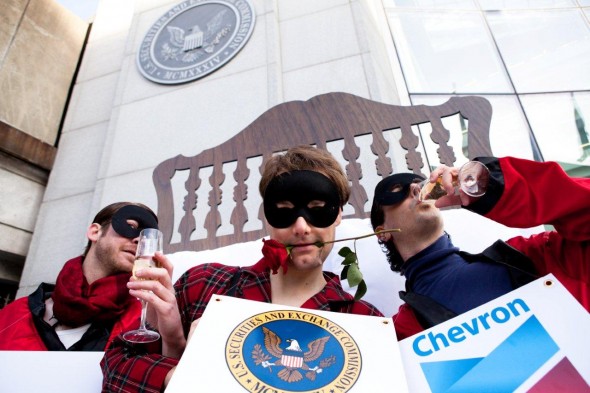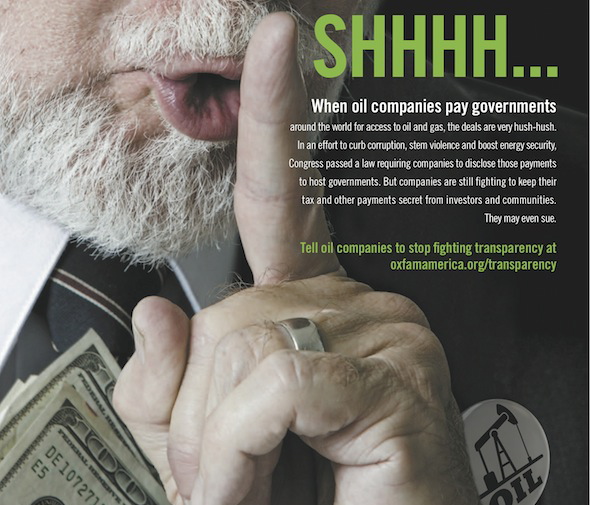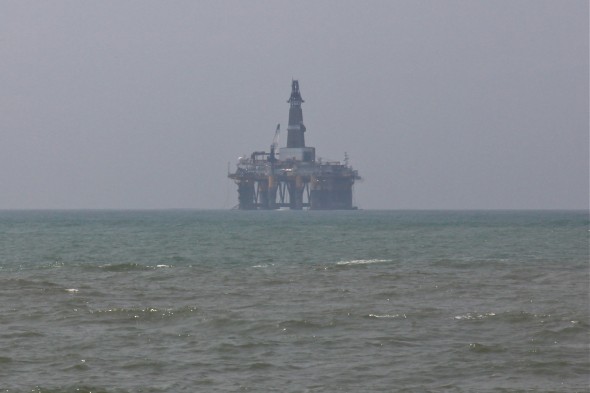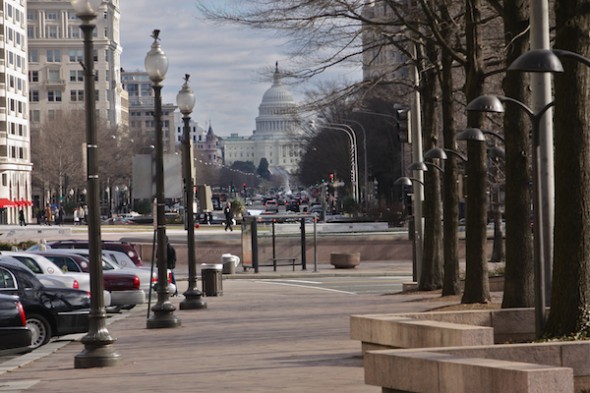Gloves are off!
There’s something deeply troubling about the notion that, with sufficient money for lawyers and lobbyists, corporations can pressure government officials to undo legislation. The bi-partisan Dodd-Frank financial reform laws were drafted, debated and approved in 2010. As I’ve written in a few recent posts, Section 1504 of this legislation requires oil and gas companies to disclose the amount of money they pay to governments in the countries where they operate (including the U.S.). The idea behind this law is simple: transparency can help those who are working for accountability.
The transparent hypocrisy of big oil

S.E.C. in bed with the oil companies? Oxfam event in front of S.E.C., February 10, 2012. Photo: Oxfam America
Ian Gary at Oxfam America has posted another excellent piece on the shameless hypocrisy of oil companies now pressuring the S.E.C. to water down parts of the 2010 Dodd-Frank financial reform legislation. (Read my blog post from yesterday for more background on this story.) Here’s the article cross-posted from Politics of Poverty:
The yawning gap between the transparency rhetoric of companies and the reality of their actions has never been more apparent than it is now.
The oil and gas industry loves to trumpet their support of international transparency initiatives and their tax contributions to the US government, but when a new law requires them to tell the public exactly how much gets paid to whom around the world, they bring out the lobbyists and lawyers.
Browse through the corporate social responsibility reports of the top oil and gas companies, and you’ll see them singing from the same transparency hymnbook. Chevron says it “believes that the disclosure of revenues received by governments and payments made by extractive industries to governments could lead to improved governance in resource-rich countries.”
Rigged?
Rigged? The Scramble for Africa’s Oil, Gas and Minerals. That’s the title of a new report out from Global Witness, the U.K. based anti-corruption campaigner.
The timing of the report’s publication – a call for increased transparency across the oil and gas industry – could not be better. At this moment, the oil industry is putting heavy pressure on the United States S.E.C. to weaken the parts of the 2010 Dodd-Frank financial reform that require S.E.C. listed corporations to disclose their payments to foreign governments.
By the numbers: giving stories the attention they deserve
“By the Numbers – the fight for oil and mining company transparency,” is a must-read item from Oxfam America’s Politics of Poverty blog (the post is also pasted below).
Some stories don’t get the attention they deserve. Important issues that are hard to translate into snappy news items are more often than not overlooked in today’s shallow “news” environment.
Remember the U.S. financial reform laws passed back in 2010? You know, the Dodd-Frank Act intended to prevent another financial meltdown? Well, one part of that reform package that hardly got any mainstream news attention was Section 1504, one of several “specialized corporate disclosure” provisions in Dodd-Frank. This item, also known as the Cardin-Lugar provision, was signed into law by President Obama in July 2010.
As the transparency advocacy organization, Publish What You Pay, explains, “The first of its kind, this law requires oil, gas and mining companies registered with the U.S. Securities and Exchange Commission (SEC) to publish their payments to the U.S. federal government and foreign governments as part of their annual reports to the SEC.”





